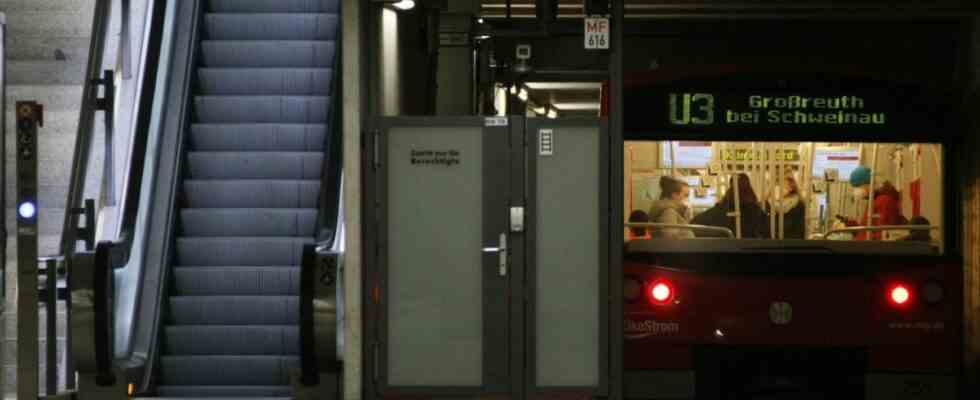Nuremberg wanted to be the “first big city in Germany” to commit to the 365-euro ticket. This is how Mayor Marcus König (CSU) formulated it in June 2020 and announced that such a ticket would be introduced in the city area for all citizens by January 1, 2023 at the latest. A “milestone” was promised, “history” would be written with it. But now Nuremberg is only likely to be the first big city to cancel a promised 365-euro ticket.
The city council will meet in the coming week, and the central point of discussion will then be the “365-euro annual subscription for everyone as a Nuremberg isolated solution”. The proposed resolution stipulates that the city would now like to refrain from introducing tickets, which was unanimously decided almost two years ago – and only want to make a decision again when “sufficient counter-financing” has been secured.
The city cites an expert opinion as the reason, according to which such a ticket would entail “high costs” in the transport association – but probably only a small increase in new passengers. The transport company (VGN) is assuming an increase of no more than 3.2 percent, which would allow themselves to be persuaded to change trains in the greater Nuremberg area. In view of these numbers – and the lack of funding from the Free State – the VGN had rejected the introduction of the ticket in the transport association.
The number of passengers would hardly increase
So the city would have to introduce the ticket within Nuremberg’s district, the so-called isolated solution. But the traffic planners are not expecting anything good here either: the annual additional costs of 23.6 million euros are said to be offset by an increase in demand of only 3.6 percent. And even for such a ticket there would currently be no funding.
A month ago, the provisional end for the ticket had become apparent. The government of Middle Franconia had approved the budget for 2022, but only under “strict conditions”. The city announced that the 365-euro ticket was “explicitly” pointed out. The accompanying comments from SPD city treasurer Harald Riedel (“The requirements of the government of Middle Franconia are clear”) and CSU town hall boss König (“We have understood”) hardly allowed any other conclusion: The ticket is already history before it was introduced is.
SPD city council chief Thorsten Brehm makes no secret of his disappointment. “Personally, it’s very difficult for me,” he says – but he simply lacks the imagination as to how the city should raise an additional 23.6 million annually. Especially since the government sent its unmistakable warning to the city before the Ukraine war, which is now likely to put further strain on the city. CSU city council chief Andreas Krieglstein sees it that way: “The prospects aren’t getting any better,” he says – and not even with potential donors, for whom the priority should now be something other than the “365-euro isolated solution for Nuremberg”. Nuremberg’s SPD boss Nasser Ahmed wants to see the wording of the proposed resolution fine-tuned and put an emphasis on the traffic turnaround – but in principle the black-red town hall alliance is in agreement: no 365-euro ticket at the end of the year.
Initiative is collecting signatures again
For Titus Schüller, the process borders on “impudence”. Two years ago, the Left City Council and its comrades-in-arms collected 20,000 signatures for a 365-euro ticket, enough to force a referendum. But before it came to that, the city had agreed to a compromise under this pressure: instead of 2021, as originally intended by Schüller’s initiative, they promised to introduce the ticket in 2023. The compromise came about at the big table, the mayor, the parliamentary groups and the initiative were involved. But now the initiative is out of the question – “and that’s just outrageous,” says Schüller. In wise foresight, they have long since started collecting signatures again.
Schüller does not believe in an allegedly small increase in passengers. And as long as the city sticks to major projects such as the Frankenschnellweg, the initiative sees no reason to forgo the cheap ticket. A quarter of the necessary signatures have already been collected, and Schüller has little doubt that this time there will be a referendum. His initiative is supported by the Verkehrsclub Deutschland (VCD), which sees the city council on the way to becoming untrustworthy: one could have expected a “responsible 70-strong city councilor” to be aware that such a ticket would cost additional money.
A referendum? If that comes, you have to “deal with it,” says SPD man Brehm. But cuts in “social, cultural and educational matters” are to be feared – which one wants to avoid at all costs.

